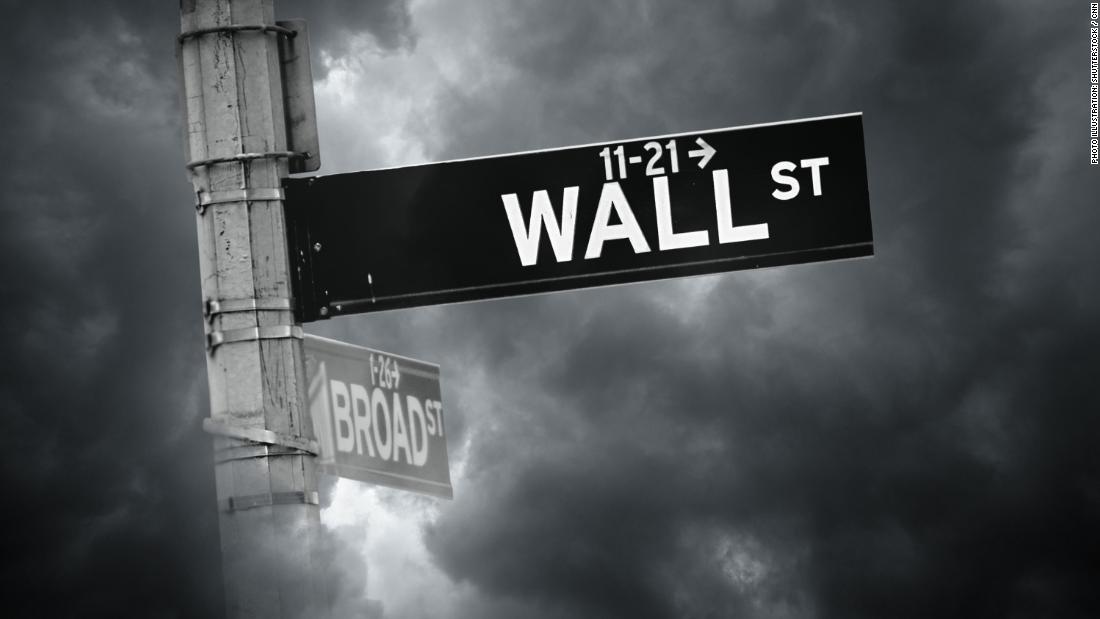
From Hong Kong to New York, stock markets were slammed by a wave of fears about slowing growth, trade wars and higher interest rates.
The Nasdaq took the brunt of the damage. Investors fled from former tech darlings like Amazon (AMZN) and Netflix (NFLX), which both lost around one-fifth of their value.
Even though markets are enjoying a sweet Halloween rebound on Wednesday, the Nasdaq is still down 9% in October. It's on track for its worst month since November 2008.
"A financial nor'easter blew through global stock markets in October," David Kelly, chief global strategist at JPMorgan Funds, wrote to clients.
The broader S&P 500 is down 6.5% in October, on pace for its worst month since 2011. And despite the Dow's 300-point rally on Wednesday, the index has shed 1,200 points, or 5% this month. That hasn't happened since January 2016.
"The market is damaged. Sometimes it takes time to get the damage undone," said Michael Block, market strategist at Third Seven Advisors, a private wealth management firm.
The pain spread to overseas markets, which were already slumping because of weaker economic growth and concerns about trade and politics.
Hong Kong's Hang Seng tumbled 10%. China's Shanghai Composite lost 8% in October, sinking deeper into a bear market. Italy's benchmark, dogged by political headaches, shed 8% as well. The MSCI EAFE, an index of stocks in 21 developed markets excluding the United States and Canada, dropped 10%.
As good as it gets?
Blame for the market turmoil is rampant. President Donald Trump and administration officials have suggested it's all about fear the Democrats will retake Congress. But few market analysts cite the midterm election as a primary driver.
Instead, investors worry that US economic and profit growth may have peaked. They're wondering: Is this as good as it gets? And if so, are stocks valued too richly? Is the Federal Reserve raising rates more quickly than the economy can handle?
"You've had what feels like peak growth rates and peak consumer confidence," said Matt Forester, chief investment officer at BNY Mellon's Lockwood Advisors.
Alarming profit warnings from industrial bellwethers like 3M (MMM) and Caterpillar (CAT) spooked investors. Amazon's revenue miss and cautious outlook added to concern that momentum stocks are too expensive.
"The global synchronized recovery has morphed into a global slowdown," said Forester.
In early October, the IMF downgraded its 2019 outlook for both the United States and China. The IMF cited the deepening trade war between the world's two largest economies.
Even the oil market has been infected by the growth fears. US oil prices have plunged more than 9% in October, while Brent crude is down 8%. Both would be the worst for any month since July 2016.
"There is no getting around the fact that the global economy is slowing," Ed Yardeni, president of investment advisory Yardeni Research, wrote to clients on Wednesday.
Bear market fears
Some fear this is the beginning of the end of the longest bull market in American history. They point to pain felt by higher interest rates, especially in the real estate and auto markets.
The end of the decade-long era of easy money from central banks is causing liquidity in global markets to vanish, according to Morgan Stanley equity strategist Michael Wilson. That trend has set off a series of rolling bear markets around the world that finally infected US stocks.
"It looks to us like this rolling bear is quickly turning into a cyclical bear," Wilson wrote to clients on Monday.
The S&P 500 is down about 7% from its all-time high. It would need to plunge much further to hit the 20% threshold considered a bear market.
Wilson argued this would be a short-term market downturn, known as a "cyclical" bear market. He said it would occur within a "secular" bull market, or one that lasts for a long period of time.
Many others believe the market is experiencing a healthy correction after becoming overheated. The US economy is still enjoying brisk growth and Corporate America is making gobs of money, even if it's at a slower pace.
If they're right, the October scare could be a repeat of the January-February market plunge. US stocks plummeted (recall the twin 1,000-point drops for the Dow) before eventually recovering to set new record highs.
"We're not there yet," Block said when asked about a bear market. "We are seeing a lot of excess. Maybe we needed a month like October to take some of the air out."
No comments:
Post a Comment